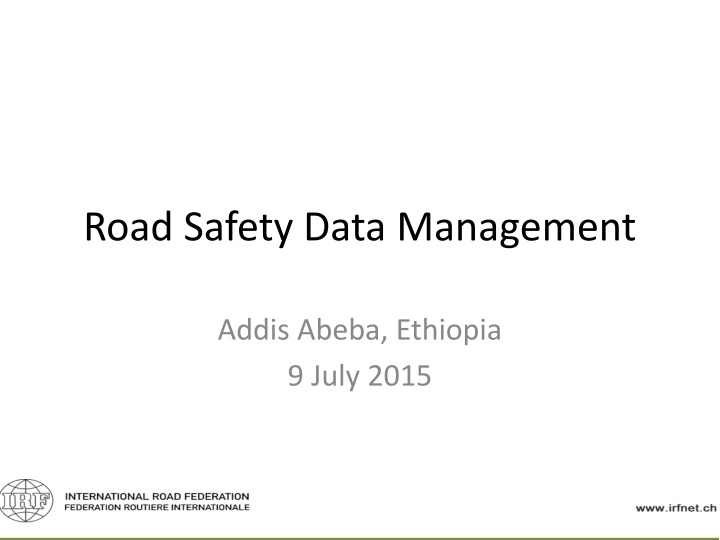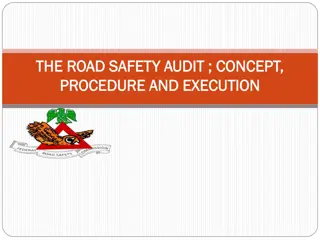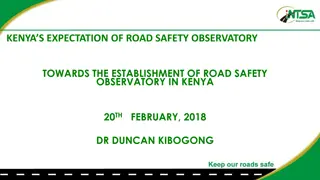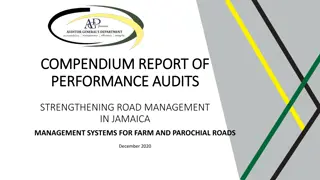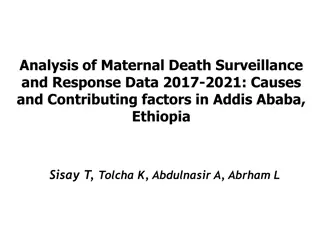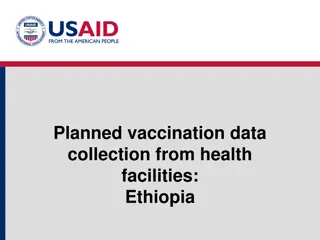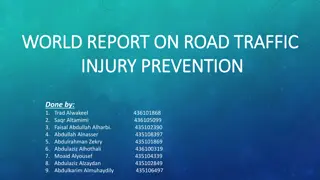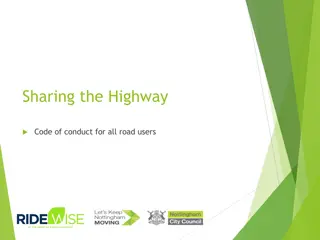Road Safety Data Management in Addis Abeba, Ethiopia
Road safety data is crucial for understanding and addressing the causes of accidents, developing effective interventions, and improving safety measures. However, in Addis Abeba, Ethiopia, data availability and quality are poor, leading to under-reporting of traffic fatalities and incomplete information on non-fatal injuries. Investing in better data collection methods and technologies is essential for enhancing road safety initiatives in the region.
Download Presentation

Please find below an Image/Link to download the presentation.
The content on the website is provided AS IS for your information and personal use only. It may not be sold, licensed, or shared on other websites without obtaining consent from the author.If you encounter any issues during the download, it is possible that the publisher has removed the file from their server.
You are allowed to download the files provided on this website for personal or commercial use, subject to the condition that they are used lawfully. All files are the property of their respective owners.
The content on the website is provided AS IS for your information and personal use only. It may not be sold, licensed, or shared on other websites without obtaining consent from the author.
E N D
Presentation Transcript
Road Safety Data Management Addis Abeba, Ethiopia 9 July 2015
Why the focus on data? Data can help to make the problem of data visible Help us understand the causes of accidents Design evidence based interventions that are costs effective
Currently, data availability and quality are poor Traffic fatalities are under-reported Data on non-fatal injuries is incomplete, or missing Costs of fatalities and injuries from accident is either missing, or incomplete Data quality is inconsistent and erratic Agencies responsible for data collection lack trained personnel and capacity The data that is available is difficult to access
Collecting data directly helps to improve safety Sweden, the Netherlands, Australia and Switzerland, four leaders in road safety have invested heavily in improving the quality and quantity of data, making it available for analysis, and in developing policy If the situation around road safety is to be improved, then the situation around data needs to improve
Data is needed for Convincing sceptics about the magnitude of the problem of road safety Understanding the causes of accidents Setting quantitative policy targets Measuring the performance of policy interventions Measure the performance of organisations responsible for improving road safety Developing better policy interventions Setting priorities CONTINUOUS LEARNING
Collecting better data is low hanging fruit New technologies that are available for collecting data: Traffic data Asset information Impacts (health, especially of non-fatal injuries) Crash data Capacity and systems need to be put in place
Dr. Adnan Rahman arahman@irfnet.ch
